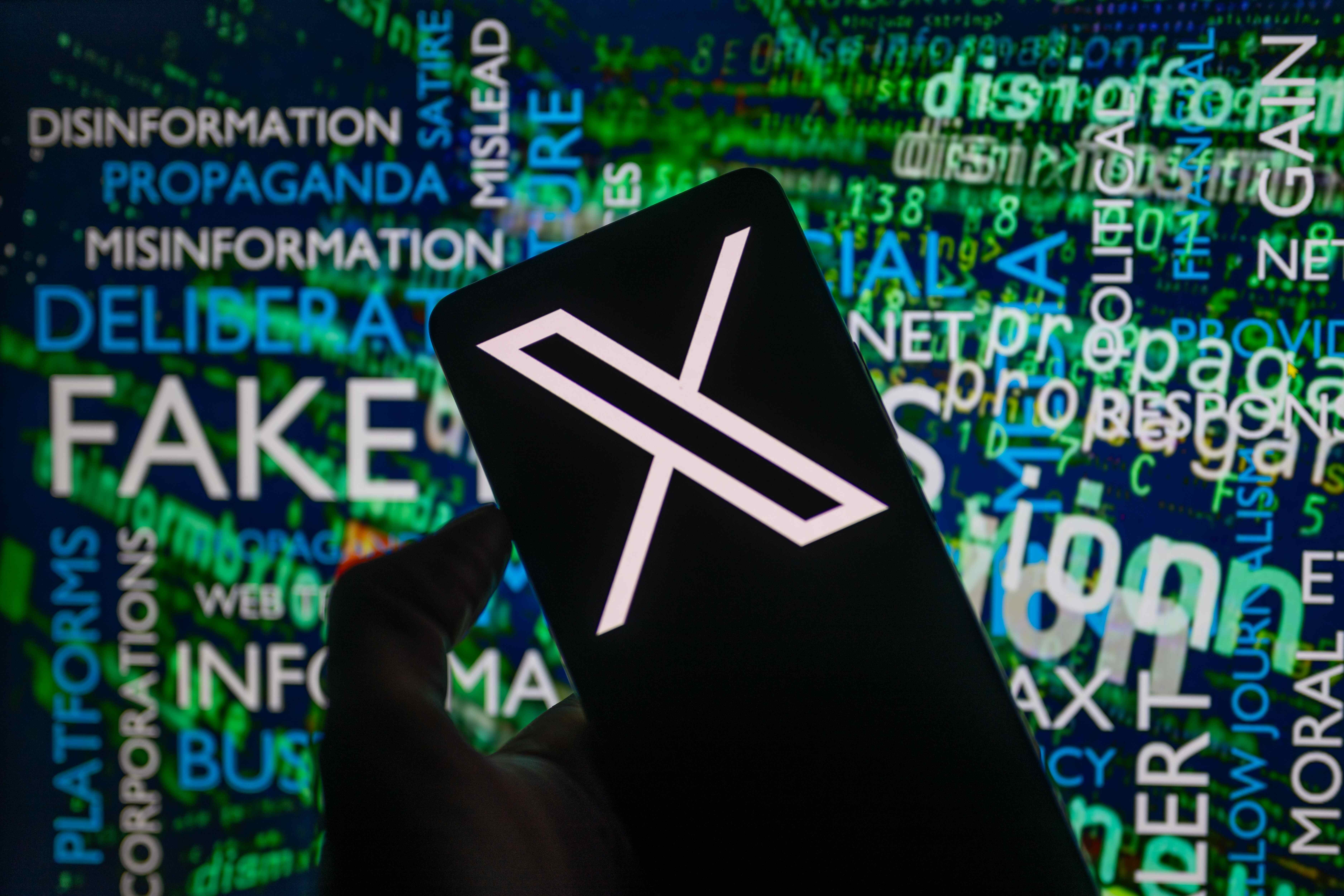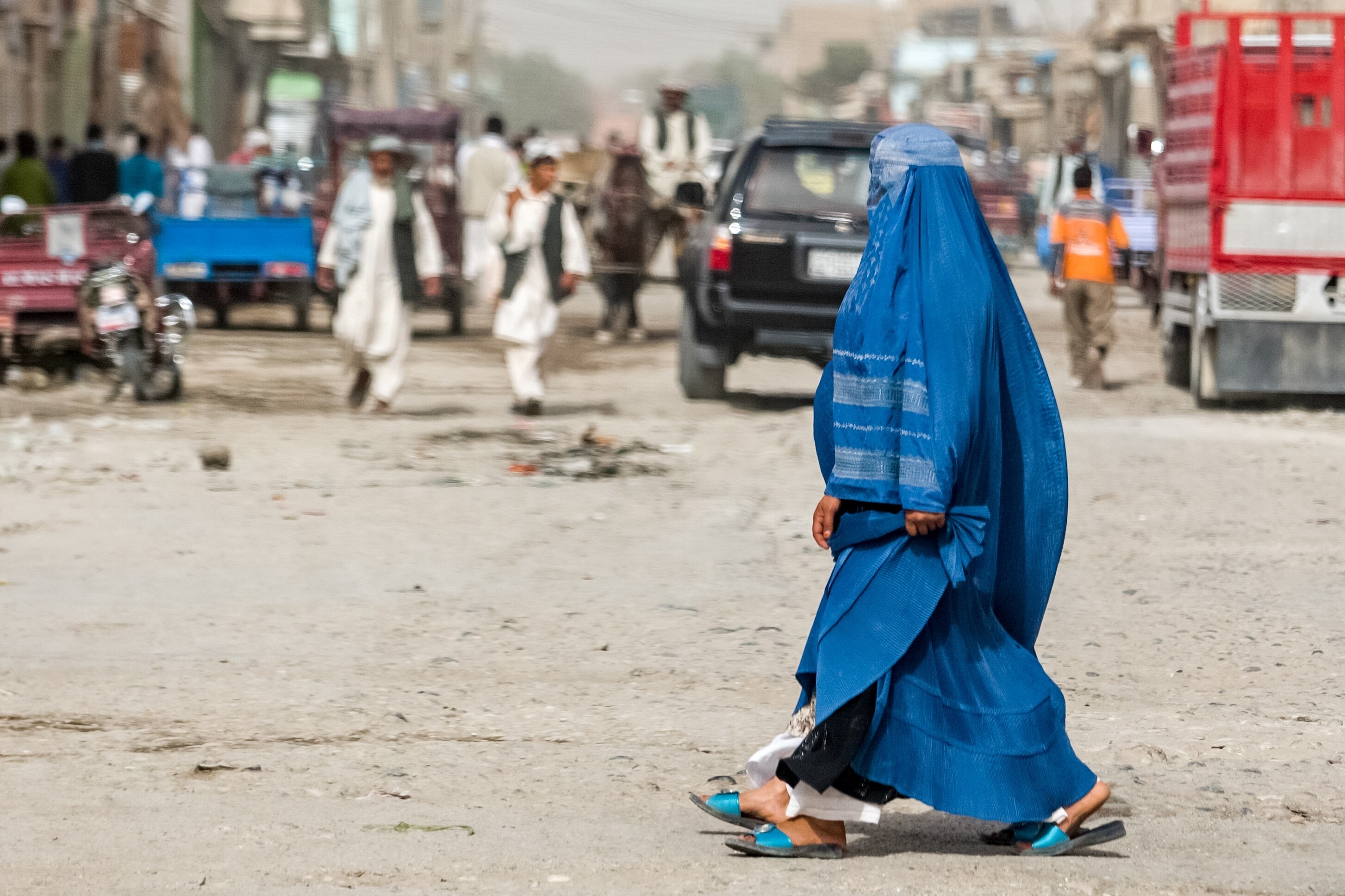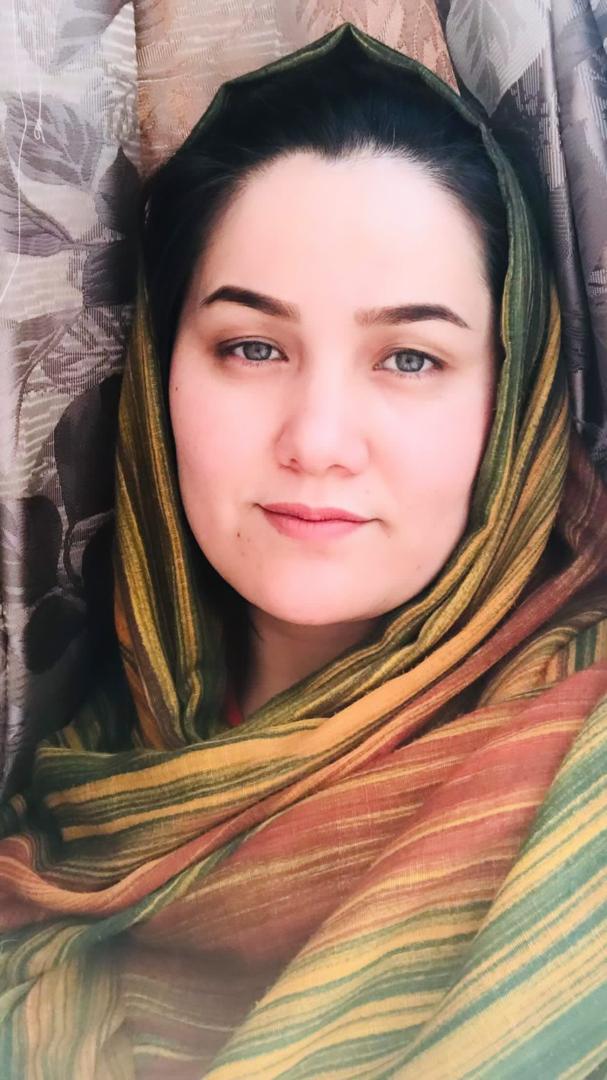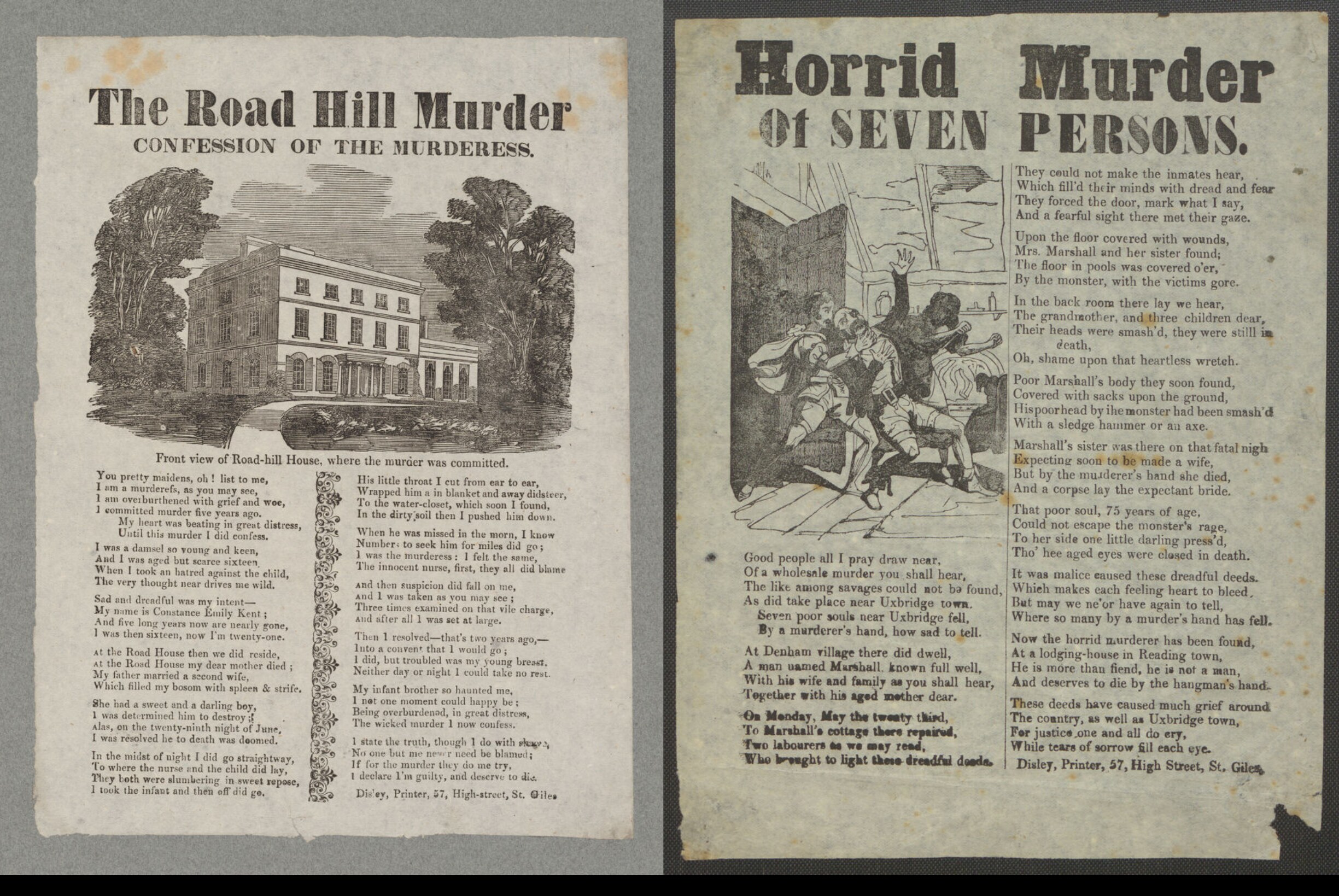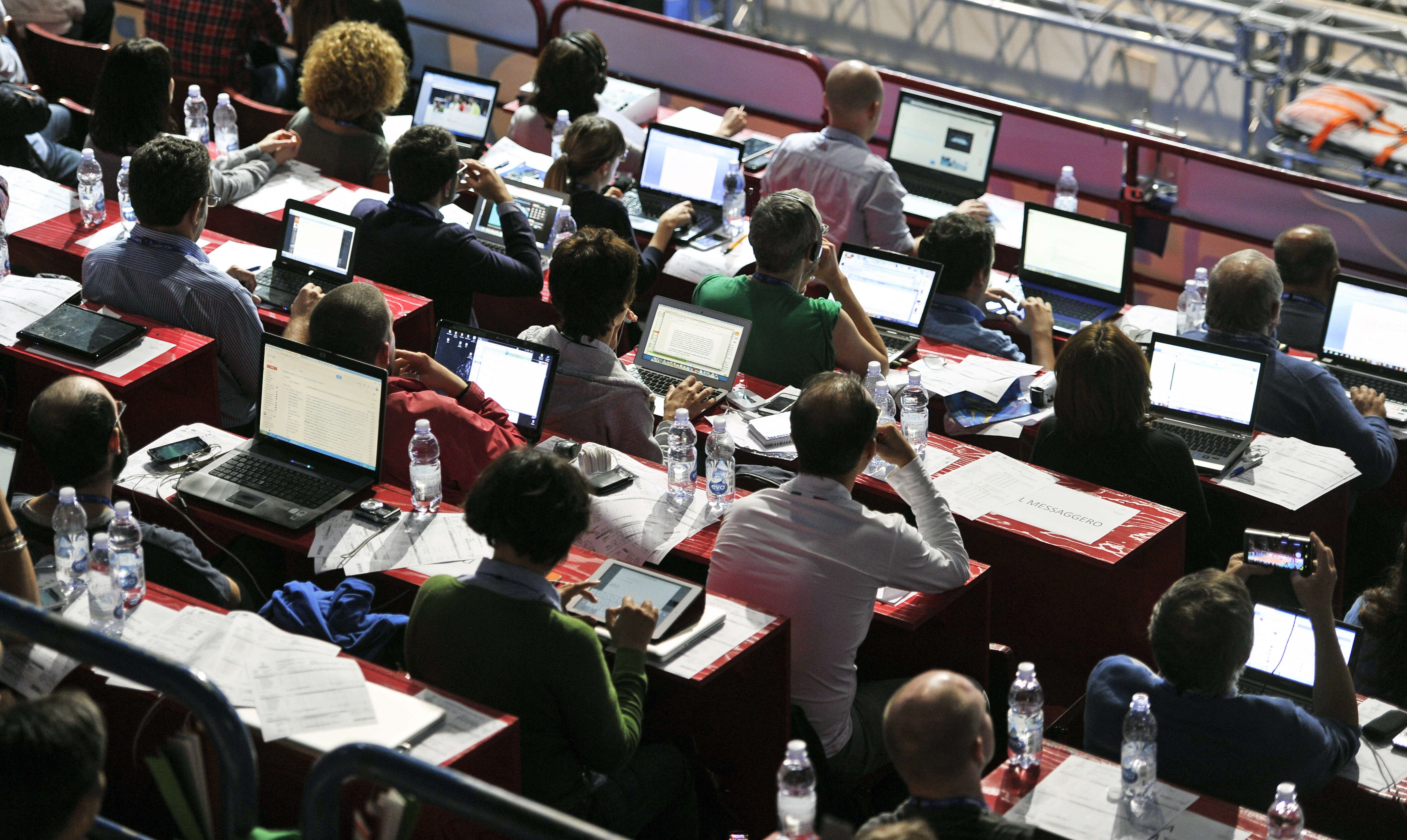يتعلق الأمر بالصعوبات والتحديات التي تواجه الدور الاستقصائي والرقابي للصحافة حتى في بلد ديمقراطي كالولايات المتحدة الأمريكية. تلك هي الفكرة الرئيسة التي يتناولها فيلم "لا شيء غير الحقيقة"، للمخرج رود لوري.
يبدأ الفيلم بعرض أحداث صاخبة وحالة من الجلبة بسبب قيام جهة مجهولة بمحاولة لاغتيال رئيس الولايات المتحدة الأمريكية، وهي العملية التي باءت بالفشل، فتقرر الإدارة الأمريكية توجيه مقاتلات لقصف قواعد عسكرية فنزويلية؛ إذ تجاهل الرئيس الأمريكي معلومات من وكالة الاستخبارات الأمريكية قبل إصدار الأمر بتوجيه تلك الضربات.
ثم تأخذ الأحداث منحى خطيرا عندما ستتمكن الصحفية راشيل أرمسترونغ المراسلة السياسية لصحيفة "الكابيتول صن تايمز" بواشنطن من الحصول على المعطيات التي تنفي تورط الفنزويليين في العملية. وقد استندت إلى المعطيات التي توصلت إليها العميلة السرية إيريكا فان دورين التابعة لوكالة الاستخبارات الأمريكية، والتي أُرسِلَت إلى فنزويلا لجمع المزيد من المعطيات عن المتورطين المحتملين في محاولة الاغتيال التي استهدفت رئيس الإدارة الأمريكية، حيث أبلغت رؤساءها بعدم وجود أي شيء يفيد تورط الفنزويليين في تلك العملية، وهو الأمر الذي تستَّرت عليه واشنطن لأسباب ترتبط بالأمن القومي الأمريكي.
خلصت الصحفية، وهي تتقصى الحقائق، إلى بطلان دوافع الاعتداء على فنزويلا. راشيل أرمسترونغ ستتلقى كل الدعم من رئيسة تحريرها بوني بنيامين، ومن كبير مستشاري الصحيفة الذي وافق على نشر تحقيقها الذي ستفضح فيه زيف المبررات التي اعتمدتها الولايات المتحدة الأمريكية للاعتداء على فنزويلا. ولأن الصحفية كانت مقتنعة بحقها في نشر ما توصلت إليه، فإنها لم تتردد في القيام بذلك؛ لأن حقوقها مصونة وفقا لما هو محدد في المادة 19 من الإعلان العالمي لحقوق الإنسان: (لكل شخص حق التمتع بحرية الرأي والتعبير، ويشمل هذا الحق حريته في اعتناق الآراء دون مضايقة، وفي التماس الأنباء والأفكار وتلقيها ونقلها إلى الآخرين، بأي وسيلة ودونما اعتبار للحدود)، ومحمية دستوريا فيما يتعلق بالحق في تلقي المعلومات ونشرها بمقتضى ما تنص عليه مضامين التعديل الأول من الدستور الأمريكي الذي تم إقراره في 15 ديسمبر من سنة 1791، وينص التعديل على ما يلي: "لا يصدر الكونغرس أي قانون خاص بإقامة دين من الأديان أو يمنع حرية ممارسته، أو يحد من حرية الكلام أو الصحافة".
وفور نشر راشيل للخبر بدعم من جل طاقم صحيفتها، تحول الأمر بسرعة إلى قضية رأي عام، ما خلق حالة من الاستنفار في دوائر صنع القرار الأمريكي إلى درجة رأت معها تهديدا للأمن القومي.
لقد أدى ذلك إلى التصادم بين السلطة الرابعة والسلطة التنفيذية؛ التي قررت إرسال المدعي العام الوطني باتون دوبوا -وهو شخصية فظة- لإقناع راشيل بالكشف عن مصادرها، وعندما رفضت، أحالها إلى المحكمة، مستندًا إلى قانون ينص على أن كل من كشف هوية أحد عملاء وكالة المخابرات المركزية يكون قد ارتكب خيانة، وأن التسريب حول تقرير العميلة يعرِّض الأمن القومي الأمريكي للخطر.
وسعيا إلى حمايتها من المتابعة القضائية، يتبنى المحامي ألبرت بيرنسايد قضيتها، وهو واثق من قدرته على ربح بعض الوقت لها. ولكن عندما ترفض إفشاء مصادرها في بداية المحاكمة، يتوجه إليها القاضي في المحاكمة قائلا: "سيدة أرمسترونغ، أريدك أن تفهمي أنه في حال طلبت منك أن تكشفي عن مصدرك، ولم تفعلي ذلك، فسأقوم بإيقافك بتهمة ازدراء المحكمة، وسيتم احتجازك". إصرارها على حماية مصادرها بدعم من محاميها الذي توجه للقاضي قائلا: "لا أستطيع أن أنصح موكلتي بأن تخون ما آمنت به" سيؤدي إلى سجنها، في محاولة من المحكمة لإرغامها على تغيير موقفها.
إلى حدود هذه المرحلة من الأحداث، يبدو أن المخرج قد نجح في أن يوضح لنا بأن السياسة في كل الأحوال ليست تعبيرا عن الخير المطلق، ولا هي تتحرك دوما لخدمة من يسعى لتجسيد قيمه، إنما تسعى في حركتيها التاريخية إلى الحفاظ على الهدنة الاجتماعية ومحاصرة بؤر التوتر، وأحيانا تحت غطاء أن الحكومة تدافع بدورها عن المبادئ باسم المصلحة العليا للبلاد، بصرف النظر عن الثمن الذي يمكن أن يدفعه الأفراد. أي إن القانون في مثل هذه الحالة صار جهازا أيديولوجيا تتمثل وظيفته في شرعنة السيادة والسيطرة وتخليدها، فيتحول الفرد إلى مجرد رقم مجهول في معادلة المصالح الخفية.
تصميم الصحفية على قول الحقيقة والاستمرار بصلابة في حماية مصادرها سيكلفها خسارات كبرى؛ ففضلا عن السجن، ستنهار علاقاتها الزوجية براي أرمسترونغ الذي سيدخل في علاقة غرامية مع امرأة أخرى، كما ستتأثر علاقتها سلبيا بابنها تيموثي البالغ من العمر سبع سنوات، والذي سيتردد -في البداية- لزيارتها في السجن، ولكن حرصا منها على صحته النفسية، ستقرر عدم عودته لزيارتها مرة أخرى، قبل أن تفقد حضانته لاحقا.
وفي السجن ستجد نفسها مجبرة على الدخول في شجار عنيف مع إحدى النزيلات التي سعت إلى احتلال سريرها، وهو ما سيعرضها لضرب مبرح نُقِلَت على إثره إلى المستشفى. كما أن قضيتها، على المستوى الإعلامي، لم تعد بالزخم نفسه كما كان الأمر في البداية، وهو ما حرر الحكومة من ضغط الرأي العام، كما صرحت لها بذلك رئيسة تحرير صحيفتها بوني بنجامين في زيارة لها.
ورغبة منها لإعادة قضيتها إلى دائرة الضوء، وافقت راشيل على مقابلة تلفزيونية، وفي مقطع معبر جدا على التزامها بما آمنت به بصفتها صحفية، وتأكيدا على صمودها ضد تعسف السلطات الفدرالية، قالت لمحاورتها: "كل صحفي حقيقي سيكون جاهزا لأن يذهب للسجن من أجل أن يحمي مبادئه".
موقفها المعبر عن حق الفرد في حرية التعبير، وعن حقه في أن يكون سيد أفكاره وسيد أفعاله وممارساته، يذكرنا بالتعريف الذي نسبته الفلسفة الحديثة للإنسان؛ وهو كائن الاختيار الحر عند ديكارت، وذروة هذه الفلسفة تمثلت في مرافعة المحامي القوية جدا "برنسايد" عن الصحفية راشيل أرمسترونغ أمام قضاة للمحكمة العليا؛ إذ قال لهم وهم مشدوهون لفصاحته وبلاغته: "السلطة أصبحت نافذة ومتغلغلة، والسيدة أرمسترونغ كان بإمكانها أن تتخلى عن مبادئها وتذهب إلى منزلها، لكنها لم تفعل ذلك.. وهذا يعني أن ألا مصدر سيتحدث لها ولصحيفتها مجددا، وفي الغد عندما نسجن صحفيين آخرين من صحف أخرى سنجعل تلك الصحف تفقد وظيفتها الحقيقية، وهذا ما يجعل التعديل الدستوري الأول في غير محله". ويردف متسائلا: "ولكن كيف لنا أن نعرف إن كان الرئيس قد قام بالتغطية على جرائم؟ أو إن كان ضابط في الجيش قد أصدر أمرا بالتعذيب؟ حينئذ سنكون أمة غير قادرة على جعل من لديهم سلطة قابلين للحساب مثل الذين ليس لديهم سلطة. وكيف ستكون طبيعة الحكومة عندما لا يساورها أي شعور بأنها خاضعة للمحاسبة؟ يجب علينا أن نهتز لهذه الفكرة. أن نسجن الصحفيين هو مسلك الدول الأخرى التي تخيف شعوبها... بدأت أشعر بالضغط البشري على موكلتي، لكن عندما قابلتها أدركت أنه مع شعب رائع لا يوجد فرق بين المبدأ والشخص".
الوفاء للمبادئ المهنية والإنسانية هو ما يفاجئنا به المخرج في آخر مشاهد الفيلم، عندما يعود بنا إلى بداية الأحداث فنكتشف بأن مصدر المعلومة للصحفية راشيل هي الطفلة أليسون ابنة عميلة المخابرات وزميلة ابنها في المدرسة.
إن رسالة هذا العمل السينمائي تذكرنا بأمرين: الأول أن أحد أدوار السينما بالدول الديمقراطية هو التربية، والثاني -وهو الذي يهمنا هنا- أن حرية الصحافة في القيام بدورها الاستقصائي والرقابي ضرورية وحيوية لحماية التجربة الديمقراطية، وأنه لا وجود لوطن حر إلا بمواطنين أحرار.































